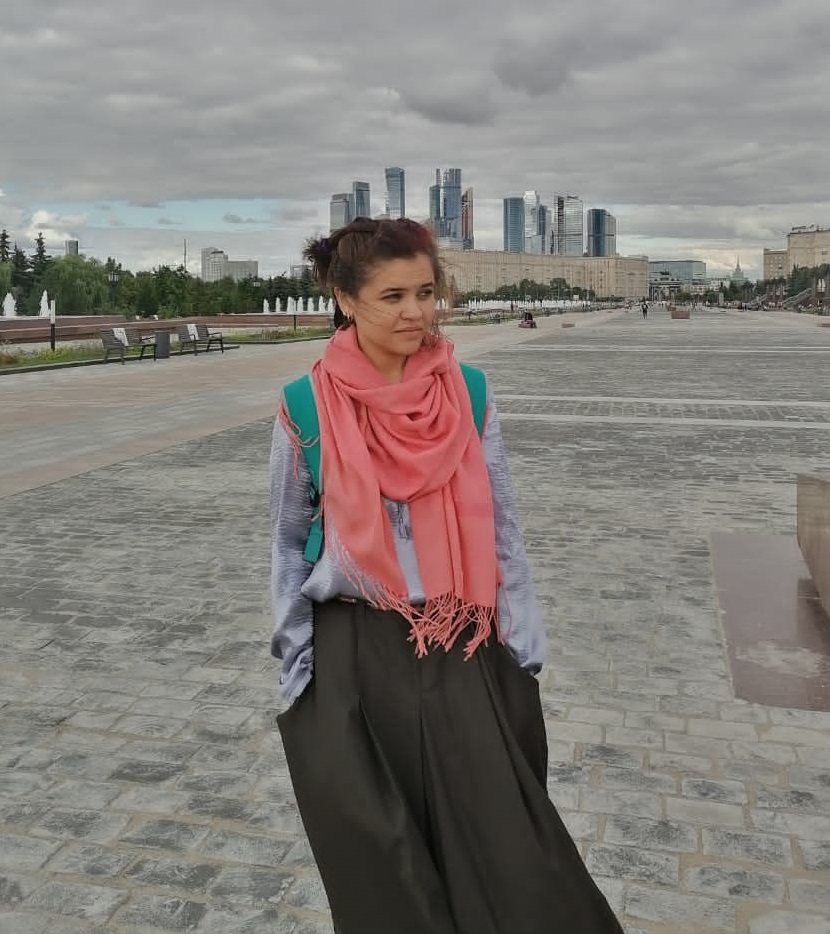I know, there will be a city here: young architect Khaula Mutaz on her plans to create cultural centers and parks in Sudan
Khaula, why did you want to study in Russia, and choose architecture as your major?
My mother is Russian, and we have lived here for a while. Therefore, I had no doubt that I would study here. Architecture is more of a compromise solution. My parents and brothers are doctors. I’ve loved drawing since I was a child. In Sudan, we have a three-storey house, and all the walls are covered with my paintings. My parents always supported me in this endeavor, but sometimes they were saying that “an art-ist” was a hobby, and I needed to get a “real” profession. So, architecture became the middle ground between my passion for drawing and the commitment to get a “seri-ous” specialty.
And you decided for yourself that painting would remain a hobby?
Three years ago, RUDN opened a new master’s program in design. I am going to do it.
That’s great proof that big dreams always come true. Do you draw profession-ally now?
Paintings — a little less often than I would like, there is not enough time for this. Some I sell, some I keep for myself. But I can tell you a rather unusual story: not so long ago, I accidentally met a woman who asked me to paint the walls of her house. That was a rather unusual request. But the result was excellent, the customer was sat-isfied. Then the word-of-mouth effect worked, and from time to time I take on such work.
In the future, when you become a designer, what goals are you setting?
My dream is to create a cultural center project in Sudan. There are practically no such facilities in my country. It would also be interesting to design parks. As you can see, there aren’t many parks in Africa.
You will definitely return to Sudan, won’t you?
I would like this so much, I even negotiated with local companies about my em-ployment. They are ready to take me, but there is a civil war in Ethiopia, and the situation in Sudan is tense. I hope that when I finish my studies in Russia, the situa-tion in Africa will change.
Did Moscow welcome you right away?
It did and it didn’t. I like walking, but it has taken me a long time to get used to transport in here. I especially don’t like going down to the subway: it is very noisy, there are lot of people. In Sudan, after all, there are only buses, and no one uses maps or GPS when walking around the city. But now I’m used to it.
What gives you strength, where do you find your inspiration?
I play the violin and piano, I love reading, including poetry. And of course I draw everything I see or think of.
RUDN University staff and alumni received state and departmental awards at the State Kremlin Palace during a festive concert in honor of RUDN 65th anniversary.
An architectural-landscape project by a 5th-year student of RUDN has been shortlisted for the annual International Professional ADD AWARDS 2024 for architects, designers, and developers in the “Urban Environment” category.
RUDN University employees’ work and contribution to the development of the university cannot go unappreciated. The Ministry of Science and Higher Education of Russia recognizes talented university employees and present them with various departmental and state awards.

.jpg)